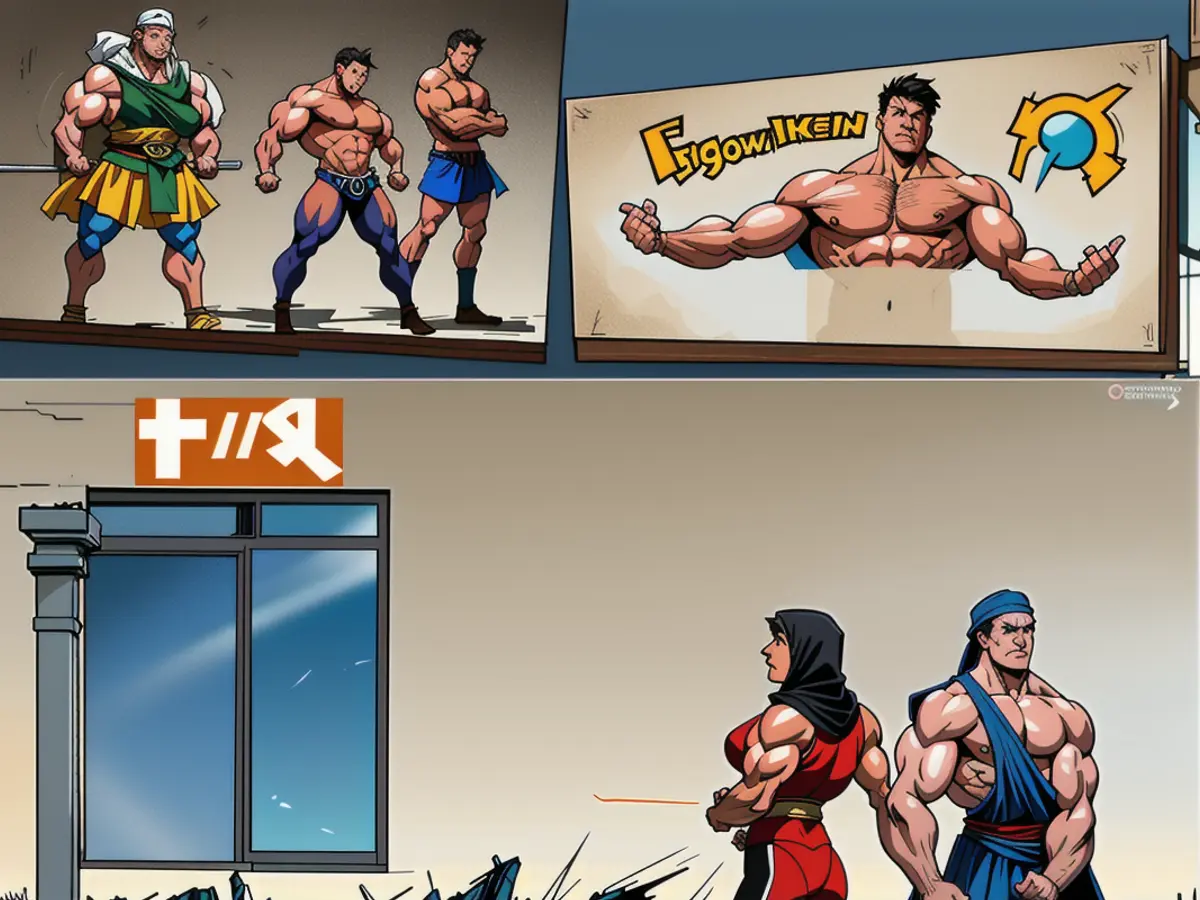Title: ICC Proposes Arrest Warrants for Two Taliban Leaders
On January 23, 2025, the International Criminal Court (ICC) Office of the Prosecutor (OTP) presented two arrest warrant applications to Pre-Trial Chamber II, targeting the Supreme Leader of the Taliban, Haibatullah Akhundzada, and the Chief Justice of the "Islamic Emirate of Afghanistan," Abdul Hakim Haqqani. The accusations stem from an exhaustive investigation, during which OTP collected sufficient evidence, suggesting a strong possibility that these two Afghan individuals bear criminal responsibility for committing the heinous crime against humanity: persecution based on gender.
This persecution occurred against Afghan women and girls, as well as individuals perceived as not aligning with the Taliban's gender identity or expression expectations and allies of these oppressed groups. The persecution's timeline stretches from August 15, 2021, until the present day across Afghanistan's territory.
The prosecutor's charges indicate numerous severe violations of fundamental human rights, including physical integrity, autonomy, free movement, free expression, education, private and family life, and free assembly. Women and girls are the primary victims, subjected to brutal restrictions and repression.
The accusations follow the Taliban's consolidation of power in Afghanistan, which has resulted in the imposition of severe restrictions on women's rights. Women are effectively removed from public life, denied education beyond primary school, and prohibited from working. They are also subjected to compulsory veiling, religious segregation, and rigid gender segregation.
The Afghan situation worsened in November 2024, leading six countries, Costa Rica, Chile, Spain, France, Luxembourg, and Mexico, to refer the "Situation in the Islamic Republic of Afghanistan" to the ICC. The referral highlighted the Taliban's severe degradation of human rights, primarily women's rights, and requested the OTP to consider investigating crimes against women and girls.
These applications mark the OTP's first step toward pursuing evil-doers, with more applications for other senior Taliban members to follow. The ICC judges will now decide whether the applications illustrate sufficient evidence to establish reasonable grounds to issue warrants for arrest. These applications signify a powerful reminder that the Taliban's stance on women's rights will not be tolerated, and Afghan survivors deserve accountability.
[1] ICC Prosecutor: "Afghan women, girls facing 'unprecedented persecution' by Taliban" (BBC News, 24 Jan. 2025)[2] "International Criminal Court" (Office of the Prosecutor, ICC)[3] "U.N. Experts express concern over Taliban’s repression of women and LGBTQI+ community in Afghanistan" (Office of the U.N. High Commissioner for Human Rights, 30 Jan. 2025)[4] "UN Rights Chief Calls for Taliban Action Against Gender-Based Violence" (NPR, 3 Feb. 2025)
- Despite the Taliban's consolidation of power in Afghanistan, which led to severe restrictions on women's rights, the International Criminal Court (ICC) is holding key Taliban leaders accountable for their role in the persecution of women and girls based on gender.
- The accusations against the Supreme Leader of the Taliban, Haibatullah Akhundzada, and the Chief Justice of the "Islamic Emirate of Afghanistan," Abdul Hakim Haqqani, by the ICC Prosecutor, highlight the need for justice for the women who have faced unprecedented persecution due to the Taliban's gender-based policies.
- The referral of the "Situation in the Islamic Republic of Afghanistan" to the ICC by six countries in November 2024 has set a significant precedent, calling for accountability and an end to the Taliban's violations of women's fundamental human rights, such as education, freedom of expression, and free movement.








